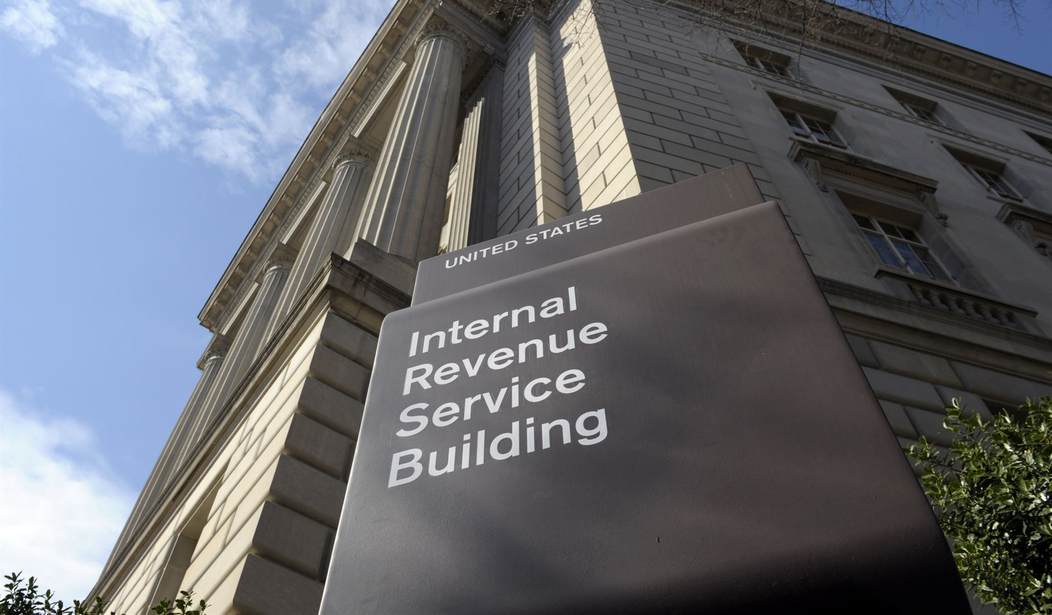Massachusetts State Rep. David Linsky is one of the biggest backers of gun control legislation in New England. In fact, we recently wrote about Linsky’s latest bill, which would ban virtually all semi-automatic rifles in the state. The Democrat is also a co-sponsor of legislation that would bar gun makers in Massachusetts from manufacturing so-called assault weapons, and earlier this year he authored a bill that would require anyone building a gun at home to possess a federal firearm license or else face criminal penalties.
While Linsky’s been working hard to make life difficult for gun owners, it sounds like maybe he should have been working a little harder to stay up to date on his tax bills. It turns out the IRS recently filed a lien against Linksky for several years worth of unpaid taxes.
The lien, filed July 16 in the Middlesex South Registry of Deeds, itemizes four years of the Natick Democrat’s unpaid federal income tax: tax year 2016 ($52,623.65), tax year 2017 ($11,005.34), tax year 2018 ($53,304.48), and tax year 2019 ($37,133.83).
While the lien states that Linsky owes a balance of $154,067.30, he told the News Service that was the original amount and he has already paid a portion of it.
“So it is less than that now. I don’t have a current number,” he said.
Linsky, a practicing lawyer, said he is actively appealing the lien on the grounds that he is up-to-date in his payment plan installments.
“My understanding is that they routinely (file a lien) in all cases … to protect their interests, and when one shows that one is current with their payment plan, then they remove it. So I expect that this will be removed,” Linsky said.
The multiple years of tax bills piled up as “the result of a number of family issues and business issues, unrelated to my work as a state representative,” he told the News Service on Tuesday. “And I emphasize that I am on a payment plan with the IRS paying back every dime and am currently current, to their satisfaction.”
If the IRS routinely files liens in “all cases,” as Linsky alleges, the question is why did they wait until now to file one against Linsky? After all, he’s been delinquent on his federal taxes since the 2016 filing, yet the IRS lien wasn’t filed until last month. Linsky says that he’s “currently current,” but how long has that been the case? Was there a time when Linsky wasn’t up to date in his payment plan, and if so, how long ago was it and how long did that period of time last?
I’m not entirely unsympathetic to Linsky’s case, because I know what it’s like to be broadsided by unexpected family and business issues. I will say, however, that over the past five years my family has managed to keep up to date on our federal taxes, even as we’ve had to cope with job losses, new employment, and some fairly hefty medical expenses related to my wife’s battle with cancer.
I can understand one or maybe even two years of tax trouble, but the fact that Linsky didn’t pay his federal taxes for at least four years is concerning, particularly since he’s placing some blame on unnamed “business issues.”
Asked about the business-related financial problems he mentioned, Linsky said, “It’s a combination of factors, principally due to family and health issues.”
A former Middlesex County prosecutor, the Boston College Law School graduate now operates a solo practice in Natick specializing in criminal defense, motor vehicle law, and domestic relations.
A federal tax lien such as this one is made on the taxpayer’s property and rights to property. But Linsky does not own real estate, he said; he rents his home.
The Natick Democrat won a 1999 special election to fill the seat vacated by Rep. Douglas Stoddart, a Republican who had been appointed to a judgeship. Linsky has subsequently won re-election 11 times, including two election cycles during which he was delinquent in his federal income tax.
Was Linsky keeping up with his payments to the IRS during those campaign cycles? That might have been of interest to voters during those elections, but it sounds like Linsky wasn’t exactly forthcoming about his tax troubles at the time. In fact, if Linsky’s family, health, and business issues dramatically impacted his ability to pay his federal tax bill, I think it’s legitimate to ask why he believes those issues didn’t impact his ability to serve in the legislature.
It’s also somewhat ironic that Linsky recently voted in favor of a voter referendum to raise taxes on millionaires in Massachusetts. The “Fair Share Amendment” will go before voters in November of next year, as will Linsky himself (at least if he chooses to run for re-election). Expect the issue of whether or not Linsky’s paying his own “fair share” of federal taxes to be campaign fodder in 2022, though honestly, his desire to infringe on the Second Amendment rights of Massachusetts residents should be an even bigger factor than his inability to pay his taxes on time.









